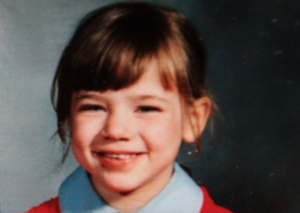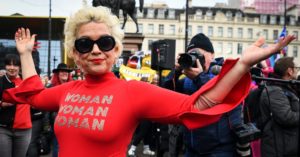In 2017, Gina Martin was the victim of a sexual offence that was not, at the time, a sexual offence. Martin was attending a festival when a stranger took a photograph up her skirt without her consent. For her, this was the moment when “politics became personal”; when she decided, with no prior experience of feminist activism, to start campaigning to change the law. It was “the most difficult work I have done, or will ever do”, she recently wrote in the Guardian. She was ultimately successful: in April 2019, “upskirting” was listed as a criminal offence under the Voyeurism Act, with perpetrators facing up to two years’ imprisonment and a place on the sex offenders register.
What Martin achieved in such a short space of time is remarkable. Like the criminalisation of marital rape, it is a change that forces us to reconsider social norms. When it comes to the body — particularly the female body — what is and is not illegal matters. It shapes how we understand both ourselves and how we expect to be treated by others. Following the law change, guidance on upskirting was added to the Department of Education’s Keeping Children Safe in Education booklet. This has not led to the imprisonment of multiple snap-happy teenage boys; its punitive impact is minimal. But as my partner, a teacher, tells me, there’s now an awareness in schools that it is unacceptable to dismiss upskirting on the basis that “boys will be boys”.
So, Martin deserves to feel proud of her activism. Yet in both her recent Guardian piece and her new book, No Offence, But, one gets the impression that she now feels torn. Partly, this is because she is now defined as “the upskirting girl”, her activism reduced to what was, for her, an experience of violation. But Martin also seems to be subtly distancing herself from what she actually achieved. “I’m proud that my political activism has had a lasting positive impact,” she writes, “but I also have a complex relationship with it.”
This complex relationship is very obvious throughout No Offence, But. Billed as a progressive handbook offering “a space to explore the problematic, distracting or lazy comments we so often encounter”, its chapters each focus on a particular phrase: “Not all men”, “I see no colour”, “I don’t do politics”. Some are written by Martin, others by guest contributors. The tone is one of preaching to the converted. In her own sections, Martin is keen to emphasise her growth, but she also seems unduly embarrassed by her former self. Both her furious feminist awakening and the visible, measurable achievements that ensued are suddenly positioned as somewhat immature, unsophisticated and, worst of all, privileged.
There’s a certain strand of social justice activism that is not always kind to feminists who get their hands dirty. Ten years ago, when Caroline Criado Perez fought a successful battle to have Jane Austen appear on the new £10 note, her detractors were keen to denounce hers as “banknote feminism”. Criado Perez’s campaign had stressed the importance of female visibility and heritage; her critics zeroed in on the fact that Austen’s image would be appearing on money, something that marginalised women sorely lacked. A straightforward achievement was belittled because it was associated with the Bank of England.
In a similar fashion, feminists who work with, or to change, the criminal justice system can find themselves denounced as “carceral feminists”. “The thrust of the accusation,” writes Julie Bindel in Feminism For Women, “is that those of us that want consequences for men who rape and otherwise abuse women are unconcerned with the fact that the prison system is a problem in general.” The accusers tend to ignore the fact that many feminist organisations, such as Bindel’s own Justice for Women, state that they would prefer it if prisons were not necessary, accepting them only as a last resort, given that no one has come up with anything more effective. As Bindel argues: “It should be possible to challenge the race and class hierarchies upheld by the criminal justice system” without putting women at risk by junking it completely.
Indeed, it is possible. But if one does not wish to bear the taint of complicity, it is uncomfortable. Unfortunately for Martin, she seems to have realised this only after she succeeded in making the world a safer place for women.
Alison Phipps, a sociologist at Newcastle University, has made herself a leading voice against so-called carceral feminists. In her 2021 book Me, Not You, she includes Martin’s upskirting law in a list of things that should be opposed on the basis that they “move us away from our ultimate goals”. (She comments, disdainfully, that the new law was announced “to loud applause from mainstream feminists”, because if there’s one thing worse than being practical, it’s being practical and mainstream.) There’s a perfect world out there, and by making it illegal for a man to stick a camera between your legs and take a photo of your crotch, Martin has apparently made it that much harder for us to find it.
Me, Not You is a difficult book to read, because it is so staggeringly misogynistic. Women who seek legal solutions to sexual violence are routinely compared to racists and fascists, their desire for justice dismissed as an unhealthy reaction to trauma. “Being raped,” writes Phipps, “often involves a visceral fear of death, whether the rape is physically violent or not — it is what makes us freeze, instead of fighting back… And if we freeze, perhaps we need our ‘kill’ after the experience is over. Unlike Arya Stark, we do not do our own killing. Instead, we ask the ‘Angry Dad’ or ‘White Knight’ of the state or institution to do it for us.”
I won’t quote the rest of that paragraph, but suffice it to say that Phipps uses the fact that accusations of rape by white women have been used to justify violence against black men to argue that “allegations of sexual violence” — by which she means real ones, as well as false — are “tools of oppression”.
Rape victims have long been demonised, the narrative being that their violation has left them damaged, vengeful and morally suspect. Think, for instance, of Medusa, known not for what was done to her, but for the literal monster it made of her. Centuries later, these myths are still with us. In Down Girl, Kate Manne describes how the rape victim who goes to court “is envisaged not as playing her difficult part in a criminal proceeding, but rather as seeking personal vengeance and moral retribution”. Contrary to Phipps’s claims, imputing vengeful urges to rape victims is not intersectional feminism — or any form of feminism — but the same old patriarchy.
Then again, in the non-carceral world that Phipps envisages, there would be no rape anyway: “There would be no national borders. There would be no prisons. There would be accountability, but not vengeance. … There would not be powerful groups dominating more marginalised ones through violence.”
One has to admire the chutzpah of a middle-class white woman writing a book that dismisses feminists who engage with the criminal justice system as “bourgeois white women” before offering up John Lennon’s Imagine as a radical solution to injustice. Then again, what is a feminism that retreats from engagement with tainted institutions left with, other than imagination?
In her chapter critiquing the phrase “the police are here to protect us”, Martin indulges in a similar form of straw-manning, only using her younger self, rather than other feminists, as the target: “I believed the police force to be a heroic institution that worked tirelessly to make society safer. They found the murderers and locked them up, they stopped violence before it got out of hand.” Did Martin really have such an idealised vision of the world? Or is it just necessary for her to pretend she did, in order to justify her earlier work? Has she heard the other feminists whispering behind her back, and decided to redeem herself, by rejecting carceral complicity?
I find it hard to believe that someone who went on to achieve so much was ever as naïve as she now implies. And I find it hard to read her undermining her activism. “It wasn’t until I was in my mid-twenties that I started to be more of a critical thinker,” she writes — meaning “someone who recognises cultural, social and geographical contexts and applies theories”, as opposed to someone whose analysis is “determined mostly by their automatic emotional response, their personal context and existing opinions”. Of course, Martin’s anger at being upskirted was an “automatic emotional response”; her highly successful legal campaign was rooted in her “personal context and existing opinions”. But now, it seems, she knows better than to let her feelings get the better of her.
How is this anything other than a step backwards? Society has long taught women to consider our emotional responses unreliable, to view ourselves as less rational than men, less capable of seeing things objectively. The feminist claim that “the personal is political” is turned against us, as though somehow, anything that is too informed by what has happened in our own lives cannot be truly relevant to anyone else.
In this feminism designed for utopia, theory is always more attractive than flesh-and-blood human beings, especially the female body, which is too messy, too unsophisticated, too implicated. It is not a coincidence, I think, that anti-carceral feminism finds common cause with trans activism, both movements raging against the inconvenient women who continue to assert the boundaries of their bodies and the validity of their trauma.
This version of feminism is, in the end, not a turn away from complicity with power, but a turn away from women. It tells us to stay quiet in the aftermath of violation, for the greater good; it tells us to bear the costs of doing nothing, so that we may be pure enough for an imagined utopia. It tells us to behave as if we don’t have bodies, as if we can exist somewhere beyond the world as it is. Imagine there’s no upskirting. Imagine there’s no rape. Imagine there are no women. It isn’t hard to do, for some.
Disclaimer
Some of the posts we share are controversial and we do not necessarily agree with them in the whole extend. Sometimes we agree with the content or part of it but we do not agree with the narration or language. Nevertheless we find them somehow interesting, valuable and/or informative or we share them, because we strongly believe in freedom of speech, free press and journalism. We strongly encourage you to have a critical approach to all the content, do your own research and analysis to build your own opinion.
We would be glad to have your feedback.
Source: UnHerd Read the original article here: https://unherd.com/




